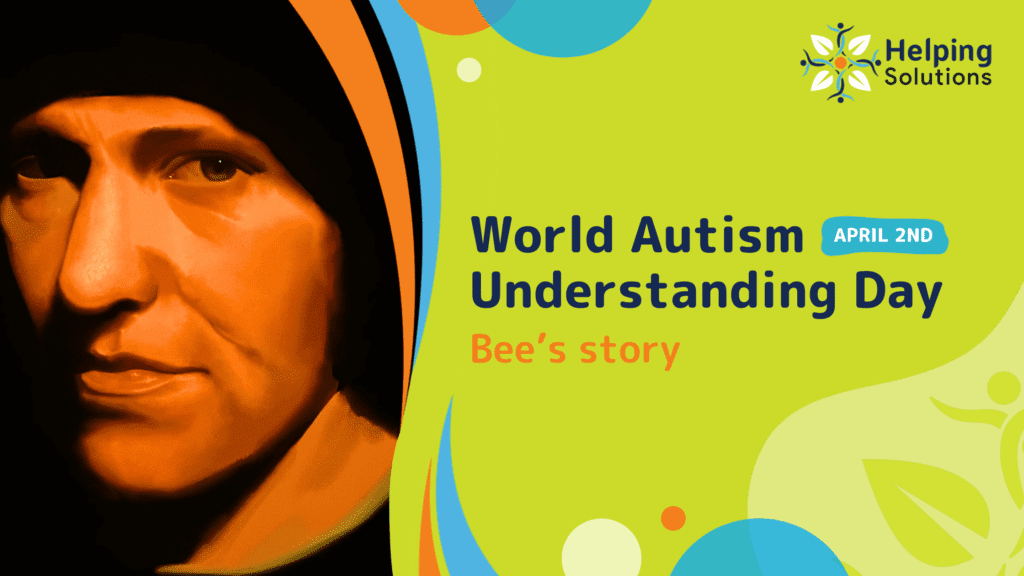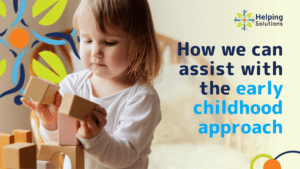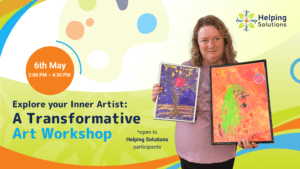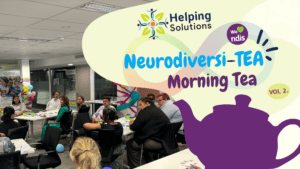April 2nd is World Autism Understanding Day, and to mark the day, we’re excited to bring you Bee’s story as she shares some of her experiences living with Autism.
A talented artist today, Bee was labelled ‘gifted’, ‘dramatic’, and ‘socially withdrawn’ as a child. ‘Autism’ wasn’t on her parent’s radar in the slightest, and to teachers and peers, she was just a quiet child with an eccentric personality.
Bee describes herself as a high achiever who was dramatic and theatrical, however grew to be very, very, very shy in the presence of anyone different.
“Quiet and subdued makes for a pleasant child—to most people, a stark contrast to the archetypal autism embedded within the pages of psychiatric literature.”
Throughout her childhood, Bee felt encouraged to maintain palatable appearances (or at least those of which she perceived to be anticipated of her) and as a result, her social struggles, emotional dysregulation, and anxiety were all disregarded as a slight of personality. She feels that this is a common experience amongst many people living with Autism.
“If anything, it’s seen as something we will ‘grow out of’, or it’s just who we are. I was never a disruptive child due to my innate introversion, so this coupled with a propensity to do well in school rendered my intrinsic struggles a matter of character.”
Today, Bee has developed a newfound awareness on how her surroundings truly influence her equilibrium and why. Little things that she thought were character flaws, she now understands to be a symptom of her being.
“I have always been the way I am, so I was always given appropriate accommodations- only now I know for what reasons and why I need them. I now know why I can’t function on the standard 9-5, I’m not broken or lazy; I just have a lower tolerance to external stimulation.
I now know why I don’t have as many social needs as others, I’m not anti-social – my battery simply drains quicker than most because I have so many things to take into consideration before speaking.
I now know why I have meltdowns, poor executive function, and why I obsess over repetition. I’m not broken. I’m just autistic.”
Representation of Autism in media
Bee’s struggles began manifesting in other ways as her capacity dwindled due to external factors, and she finally saw a professional who gifted her ‘a lovely cocktail of diagnosis’ over the steady course of 10 years. After years of confusion, she finally met with a psychiatrist who understood how Autism manifests in women and finally felt her peace.
“So many of us women with Autism are misdiagnosed with a barrage of misogynistic labels due to the perpetual narrative that Autism takes a singular shape in the form of a young intellectually aloof male whose meltdowns are earth-shattering. I only wish that all the people I’ve met before could have had the same peace of mind knowing why they are the way they are.”
Autism is so routinely commercialised, that character representation in media falters to an intensive hyperbolised iteration of the DSM-5 (i.e.; The Sheldon Cooper-ification of mainstream tv). According to Bee, this is a huge contributor for why nearly 80% of women are misdiagnosed (or at least go down a slow and frustrating path to their diagnosis) since ASD is truly a spectrum.
“I feel as though media representation is so inherently important, as it broadens our perspectives as to how neurodiversity can manifest, all the while through a digestible lens. And it can be done right—my favourites which stand as a testament to neurodiversity are; Mabel Pines (Gravity Falls), Tina Belcher (Bobs Burgers), Abed Nasir (Community), Will Graham (Hannibal), and Lisa Simpson (Simpsons).”
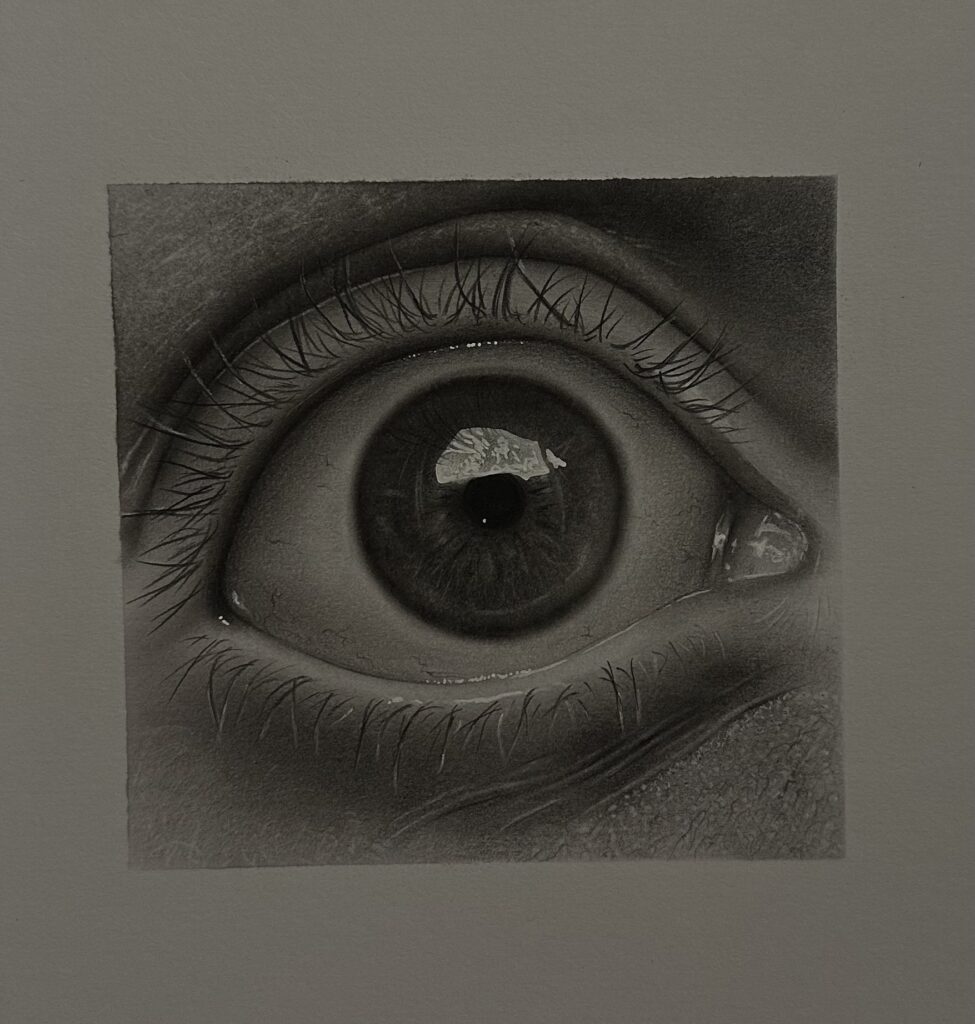

The stigma of Autism
One of Bee’s biggest struggles with Autism is that she feels so different and socially alienated, and shared that as soon as people learn she has Autism, their behaviour instantly changes towards her.
“It’s either dismissive (no you don’t- my nephew has autism and you’re nothing like him), or instant coddling as though I’m a child. Living with Autism sometimes feels like growing up in a world that constantly infantilises you.”
Seeing the change in behaviour is still a challenge for Bee—she described it like a switch that visibly flips in people’s minds from her being an equal to something less than. The blatant shift in power-dynamics is one of the most obvious differences.
Those feelings are further challenged by the demand to perform a foreign iteration of herself in polite society—one where her true feelings and experiences are less valid and she is more prone to harsh judgement if she lets appearances slip. It’s a constant, exhausting feeling of her true self not being acceptable or good enough.
“A constant attempt to be seen as kind makes me bitter and fosters a sour resentment towards people; a demand which makes me not want to interact with anyone.
We all have the capacity for the same feelings and behaviours. But somehow, someone ascertained that my responses aren’t warranted and render me abnormal. Maintaining a polite exterior when I can feel, smell, and hear everything around me is kind of difficult—and when I falter appearances, suddenly I’m rude or acting out.”
An ideal world
Bee describes the culture of Australia to be especially challenging for those living with Autism due to it’s conversative mindset. Australian people can be very hesitant to see someone who presents ‘high functioning’ as disabled—instead, you’re labelled ‘lazy’ when it’s burnout fatigue or ‘dramatic’ when it’s overstimulation.
“Being high functioning and late diagnosed instils me with a sense of imposter-syndrome and makes it hard to communicate my needs with people who have a fixed image of Autism in their mind.”
When asked what a more inclusive society might look like for those living with Autism, Bee shared some things that would make a massive difference for her.
“In an inclusive society, I’m not expected to perform my politeness through eye contact and forced smiles. Everyone says exactly what they are thinking, and subtext is irrelevant. Corporate Australia eradicates formal wear and prioritises comfort. And bubble tea is funded through our tax dollars.
In all seriousness, I would love to see a world which sees me—and if this entails all fluorescent lights being replaced with lamps, a resurgence in baroque architecture, and bubble tea being funded through our tax dollars, I would be so happy. It would be a society which incorporates diversity instead of gentrifying it. Disability isn’t always palatable, and adjusting expectations and environments would make all of us more comfortable.”
“I love art, I love music, I love science, I love philosophy, I love anything which forces me to think and feel profoundly. Autism helps me see the world through a whimsical lens that I wouldn’t give up for anything.”
Take a look at Bee’s stunning artwork below—a true testament to her deep passion and immersion with her creative works.
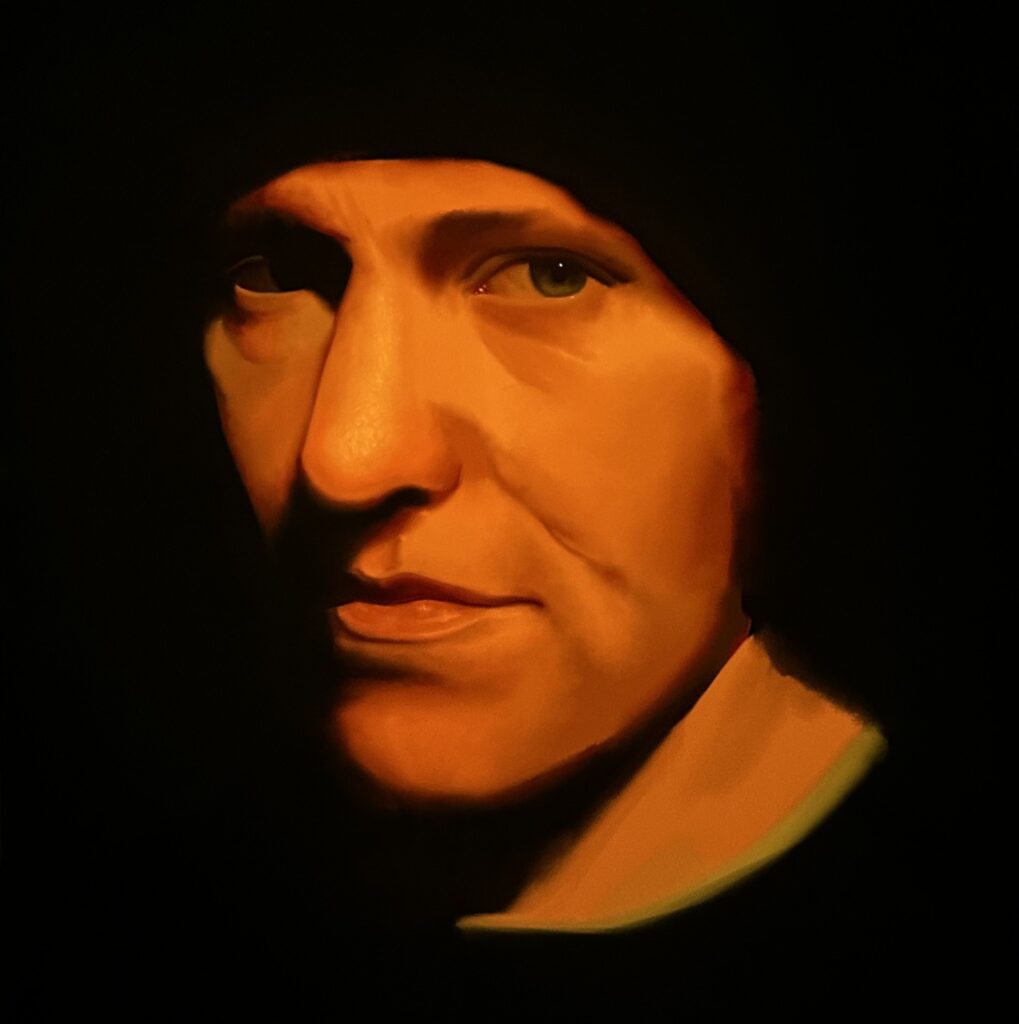

Interested in learning more about Autism, or exploring ways you can be more inclusive?
The following organisations and resources can help:
- Autism WA – provides support and resources to those living with Autism and their families.
- Aspect Spectrum Australia – World Autism Understanding Day – provides services to those living with Autism and their families.
If you’re seeking support groups for people living with Autism, check out the following Perth-based groups:
- SAGE (Social Autism Group Events) is a group run by people with autism and offers a safe, casual social space for attendees.
- The PDA Perth WA Parent Community and Support Page exists to give and receive support from Perth-based parents of autistic children.
- Divine Social supports guests to form lasting social connections and runs weekly events participating in a range of activities including bowling, darts and golf.


